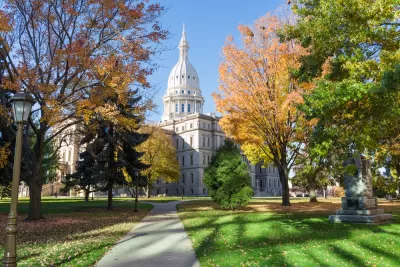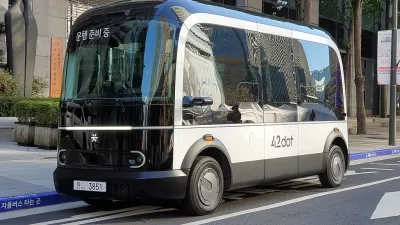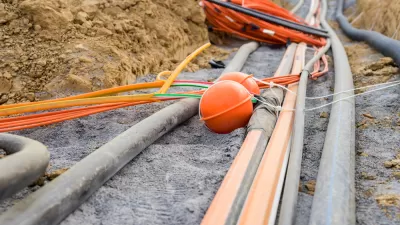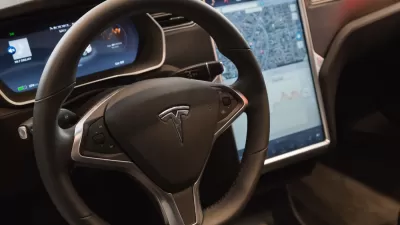Michigan State University plans to turn its 5,200-acre campus into a test site for advanced transportation technologies.

Michigan State University is launching a campus-wide mobility research initiative that will apply artificial intelligence, behavioral science, and cloud storage to advance autonomous technology.
Already, the university has installed charging stations for electric vehicles and a testing site for autonomous vehicles on campus. Off campus, MSU has embedded smart sensors on the Mackinac Bridge as part of a project developing the hardware that will allow autonomous vehicles to communicate with infrastructure and other cars. Faculty and student researchers are also using artificial intelligence to predict human and vehicular behavior in hopes of improving guidance systems for autonomous vehicles.
On top of studying technological advancements, the university is taking a holistic approach to new mobility—tackling potential legal challenges, forecasting consumer behavior, and developing navigation apps that integrate ride-hailing, public transit, and a suite of other options.
FULL STORY: MSU Turning Campus Into Mobility Test Site

Alabama: Trump Terminates Settlements for Black Communities Harmed By Raw Sewage
Trump deemed the landmark civil rights agreement “illegal DEI and environmental justice policy.”

Planetizen Federal Action Tracker
A weekly monitor of how Trump’s orders and actions are impacting planners and planning in America.

The 120 Year Old Tiny Home Villages That Sheltered San Francisco’s Earthquake Refugees
More than a century ago, San Francisco mobilized to house thousands of residents displaced by the 1906 earthquake. Could their strategy offer a model for the present?

In Both Crashes and Crime, Public Transportation is Far Safer than Driving
Contrary to popular assumptions, public transportation has far lower crash and crime rates than automobile travel. For safer communities, improve and encourage transit travel.

Report: Zoning Reforms Should Complement Nashville’s Ambitious Transit Plan
Without reform, restrictive zoning codes will limit the impact of the city’s planned transit expansion and could exclude some of the residents who depend on transit the most.

Judge Orders Release of Frozen IRA, IIJA Funding
The decision is a victory for environmental groups who charged that freezing funds for critical infrastructure and disaster response programs caused “real and irreparable harm” to communities.
Urban Design for Planners 1: Software Tools
This six-course series explores essential urban design concepts using open source software and equips planners with the tools they need to participate fully in the urban design process.
Planning for Universal Design
Learn the tools for implementing Universal Design in planning regulations.
Clanton & Associates, Inc.
Jessamine County Fiscal Court
Institute for Housing and Urban Development Studies (IHS)
City of Grandview
Harvard GSD Executive Education
Toledo-Lucas County Plan Commissions
Salt Lake City
NYU Wagner Graduate School of Public Service





























